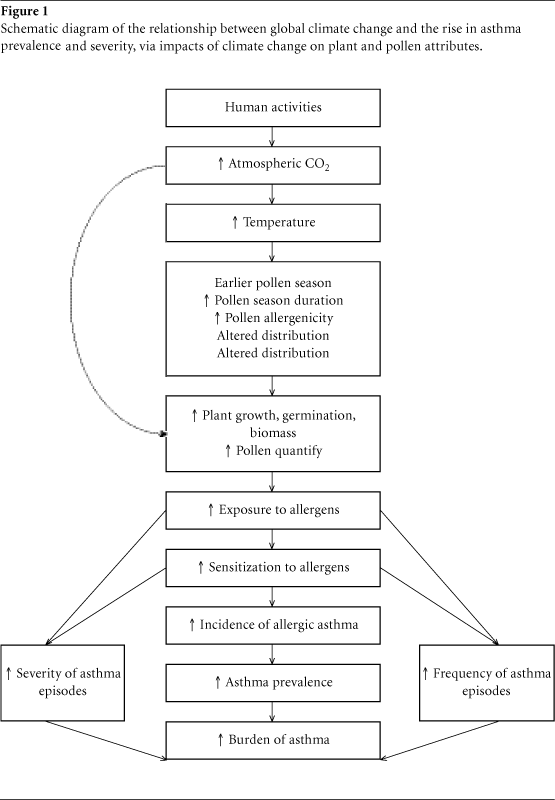The increase in asthma incidence, prevalence, and morbidity over recent decades presents a significant challenge to public health. Pollen is an important trigger of some types of asthma, and both pollen quantity and season depend on climatic and meteorological variables. Over the same period as the global rise in asthma, there have been considerable increases in atmospheric carbon dioxide concentration and global average surface temperature. We hypothesize anthropogenic climate change as a plausible contributor to the rise in asthma. Greater concentrations of carbon dioxide and higher temperatures may increase pollen quantity and induce longer pollen seasons. Pollen allergenicity can also increase as a result of these changes in climate. Exposure in early life to a more allergenic environment may also provoke the development of other atopic conditions, such as eczema and allergic rhinitis. Although the etiology of asthma is complex, the recent global rise in asthma could be an early health effect of anthropogenic climate change.
Aeroallergens; Anthropogenic climate change; Asthma; Carbon dioxide

